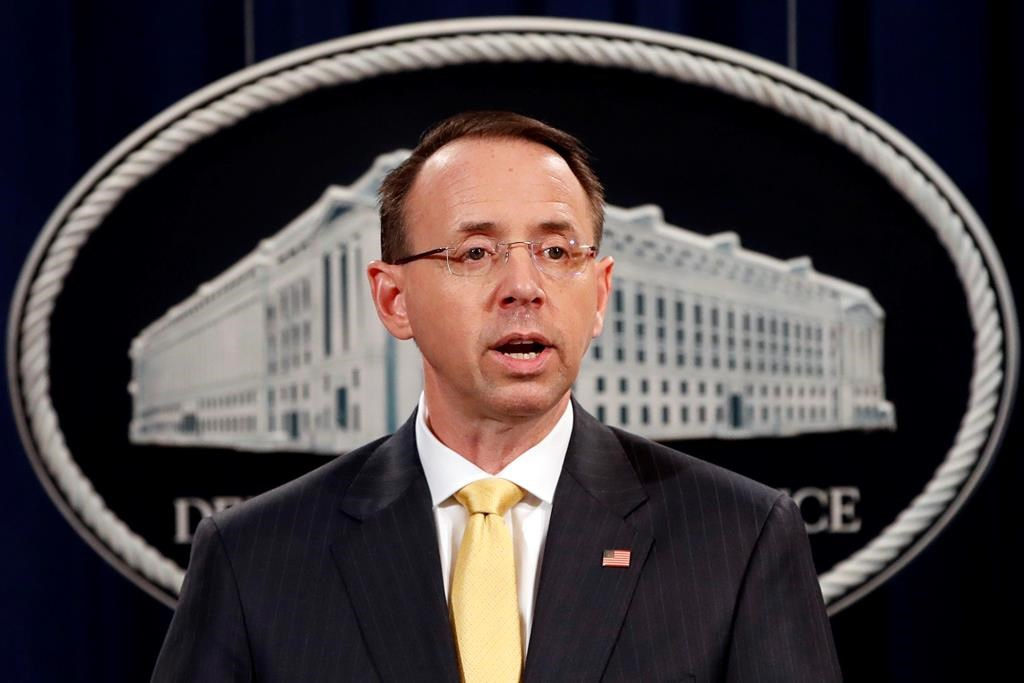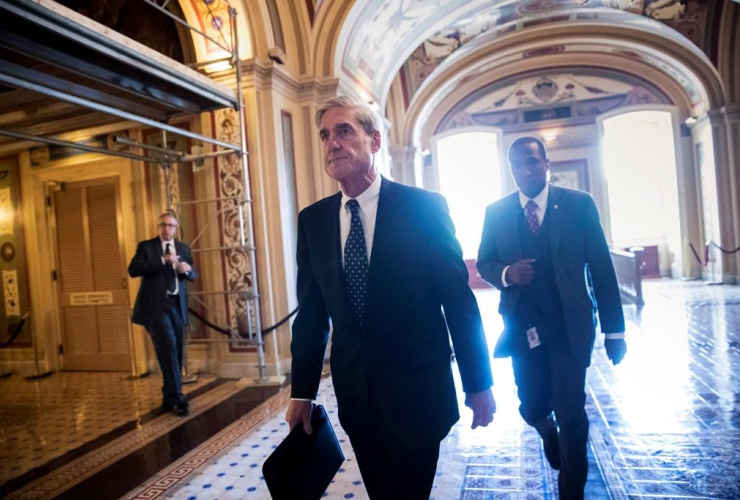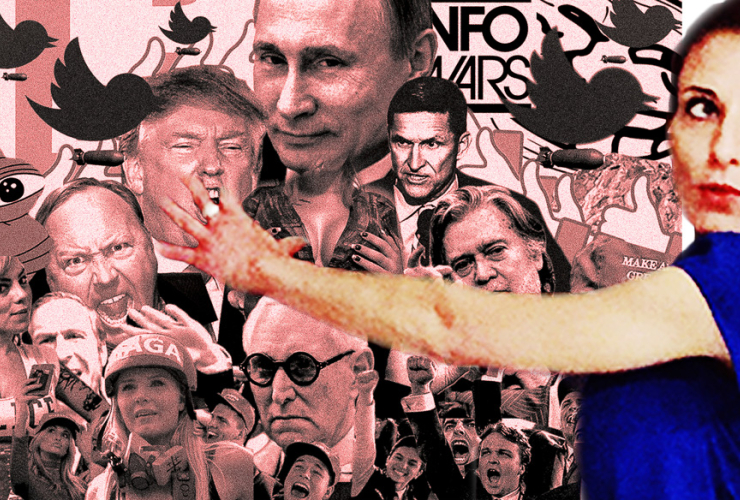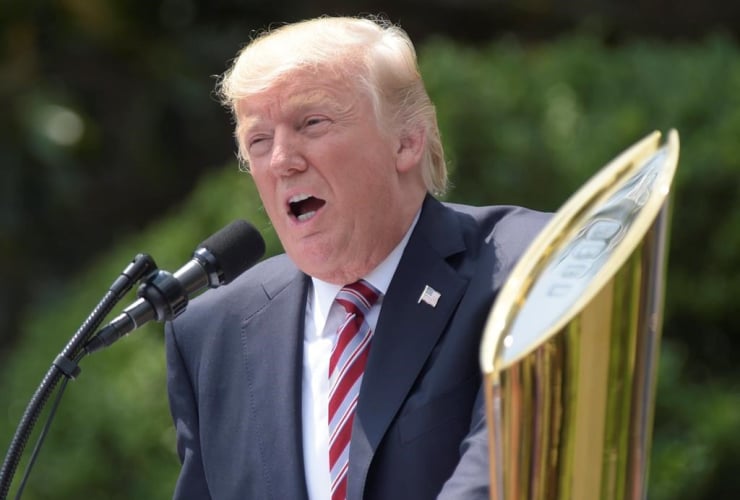A dramatic new chapter was opened Friday in the Russian election-meddling scandal. In unprecedented detail, special counsel Robert Mueller has described a Russian scheme to influence the 2016 American election.
It allegedly involved identity theft, bank fraud, a series of election-law violations and an astonishingly organized operation in which salaried employees worked in separate departments to spread contempt for most major American politicians not named Donald Trump.
Thirteen Russians, and three organizations, have been charged.
The allegations laid out Friday brought immediate consequences. By the day's end, the U.S. president, who has consistently avoided acknowledging Russian election involvement, appeared to state unequivocally that Russians had indeed meddled in American affairs.
Trump made that concession with one caveat: there was no collusion from his own side, he said. Indeed, there were no allegations of wrongoing made Friday against either his campaign, or any other Americans.
There was one exception. Mueller delivered a separate indictment Friday of one American man. Richard Pinedo of California pleaded guilty to using a company called Auction Essistance in selling access to financial using stolen identities.
Here are several highlights from the indictments:
- —"The Translator Project." That's allegedly the unofficial name of a Russian operation to help Trump, hurt Hillary Clinton, but more generally just spread distrust of America's political system.
- —The project allegedly began as early as 2014. It involved a Russian organization called the Internet Research Agency — which had a budget for graphics to be spread online; search-engine optimization; data analysis; IT; and salaries with performance bonuses. By 2016, the unit had more than 80 employees.
- —Russian operatives began monitoring American social-media commentary in 2014 to learn about U.S. politics. By 2016, members of the group were encouraged to criticize all presidential candidates except two. According to the indictment sheet, instructions went out to operatives not to attack Trump or Bernie Sanders, allegedly saying: "We support them."
- —Identify fraud occurred. Operatives allegedly stole American identities. That included using U.S. social-security numbers and dates of birth to obtain drivers' licences, and PayPal accounts used to make payments.
- —Election laws were broken. It's illegal for foreigners to fund U.S. election campaigns. So members of the group claimed to be Americans. They reached out to people on the Trump campaign, seeking advice on where to target ads.
- Other candidates like Ted Cruz, Marco Rubio and Clinton in particular were clobbered with negative social media posts and ads.
- Conspirators wrote messages claiming to have organized Trump rallies. They also engaged in some campaign theatrics: they paid a real American to wear a costume portraying Clinton in a prison uniform at a rally in West Palm Beach, Fla.
- Ads included a form of voter suppression specifically aimed at African-Americans, with messages from imposters pretending to be other African-Americans, like: "Hillary Clinton Doesn't Deserve the Black Vote."
- Social-media posts boosted Trump — like in tweets with the hashtag, "#TrumpTrain," while working to dampen Democrats' enthusiasm for Clinton.
- Ads were not reported to the U.S. Federal Elections Commission as required by law.
- The organization was funded by one of the Russians charged: Businessman Yevgeniy Viktorovich Prigozhin.
- The Russians eventually realized they had been discovered. In September 2017, one defendent, Irina Kaverzina, emailed a family member, "We had a slight crisis here at work: the FBI busted our activity (not a joke). So, I got preoccupied with covering tracks together with the colleagues... I created all these pictures and posts, and the Americans believed that it was written by their people."
- After the election, the defendants allegedly staged rallies to support the president-elect — while simultaneously staging rallies to protest his election. According to Deputy Attorney General Rod Rosenstein, the defendants even organized pro- and anti-Trump rallies in New York City on the same day after the election.
- The indictments have already produced one result. President Donald Trump has finally, unequivocally, blamed Russia for meddling in U.S. affairs. He did this on Twitter, while adding a caveat that he had nothing to do with it and it didn't affect the election results. Trump tweeted: "Russia started their anti-US campaign in 2014, long before I announced that I would run for President. The results of the election were not impacted. The Trump campaign did nothing wrong — no collusion!"
- Rosenstein also stated Friday that there's no evidence the Russian meddling changed the election result. Clinton lost the election by a margin of about 80,000 votes in Pennsylvania, Michigan and Wisconsin, states where Democratic turnout was especially low.





Comments